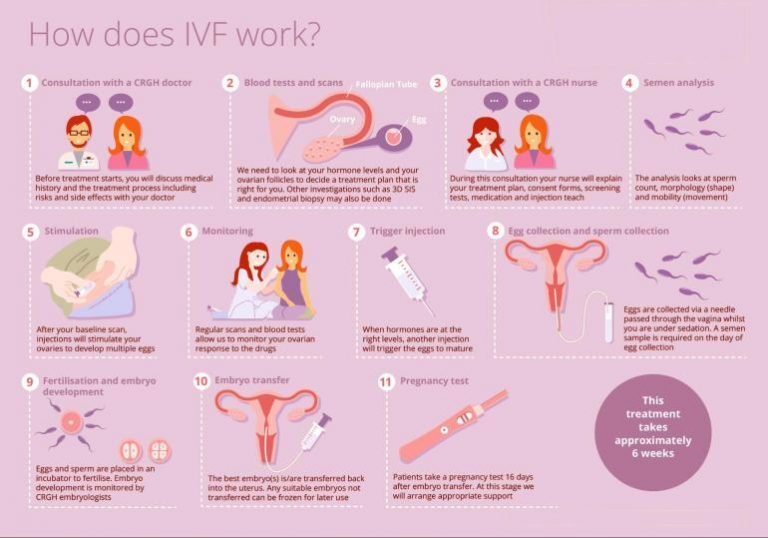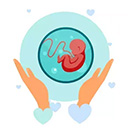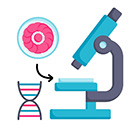Is IVF a Sin? Exploring Faith, Science, and Personal Choice
In vitro fertilization (IVF) has been a game-changer for millions of people dreaming of starting a family. It’s a medical marvel that’s helped countless couples overcome infertility, yet it’s also sparked deep questions—especially among those who wonder about its place in their faith. Is IVF a sin? Does it align with religious teachings, or does it cross a moral line? If you’ve ever wrestled with this, you’re not alone. This isn’t just about science or religion—it’s about real people, real emotions, and the tough choices they face.
Let’s dive into this topic with an open mind. We’ll explore what major religions say, what science tells us, and how everyday folks navigate this deeply personal decision. Along the way, we’ll uncover some fresh angles—like how IVF’s environmental footprint ties into stewardship, or what the latest studies say about its emotional toll. Whether you’re religious, curious, or just here to learn, there’s something for you.
What Is IVF, Anyway?
IVF stands for in vitro fertilization, a process where doctors combine an egg and sperm outside the body, in a lab, to create an embryo. Once the embryo grows for a few days, it’s placed into the uterus, hoping it’ll implant and lead to a pregnancy. It’s a lifeline for people dealing with infertility—about 1 in 8 couples in the U.S. face this struggle, according to the CDC. Since the first IVF baby, Louise Brown, was born in 1978, over 8 million babies have come into the world this way.
But IVF isn’t simple. It involves hormone shots, egg retrieval, and sometimes tough calls about extra embryos. For some, it’s a miracle. For others, it raises big questions: Are we “playing God”? What happens to unused embryos? These concerns often tie back to faith, so let’s start there.
What Do Major Religions Say About IVF?
Faith shapes how many people view IVF. Different traditions offer different takes, and even within the same religion, opinions can vary. Here’s a rundown of what some major religions say—and where the gray areas lie.
Christianity: A Spectrum of Beliefs
Christianity doesn’t have one clear stance on IVF—it depends on the denomination and personal interpretation.
- Catholic Church: The official position is a firm “no.” The Vatican’s Donum Vitae (1987) argues that life begins at conception, and IVF separates procreation from the marital act. Extra embryos being discarded or frozen? That’s a big issue too—it’s seen as disrespecting human life. Pope Francis has echoed this, calling for respect for every embryo.
- Protestant Views: Things get more flexible here. Many evangelical and mainline Protestant churches don’t have an official rule. Some see IVF as a gift from God to help families, pointing to Bible verses like Psalm 127:3 (“Children are a heritage from the Lord”). Others worry about embryo loss, asking: If life starts at conception, what about those that don’t make it?
- Orthodox Christianity: It’s a mixed bag. The Eastern Orthodox Church often leans against IVF, especially if it involves donors or surrogates, because it disrupts the “natural order” of marriage. But some leaders allow it case-by-case if it’s just the couple’s egg and sperm.
Real talk: A 2023 Pew Research survey found 54% of U.S. Christians think IVF is morally acceptable, but that number drops among devout Catholics. So, your pastor might say one thing, but your neighbor’s church could say another.
Islam: Intention Matters
In Islam, IVF gets a cautious green light—under conditions. Most scholars agree it’s fine if it uses the husband’s sperm and wife’s egg, staying within marriage. The Quran doesn’t mention IVF (obviously—it’s ancient!), but verses like Surah 42:49 (“To Allah belongs the dominion of the heavens and the earth; He creates what He wills”) suggest God controls creation, and IVF could be a tool He provides.
- Rules: No donor eggs or sperm—lineage must stay clear. Freezing embryos? Okay, as long as they’re used later by the same couple. Discarding them? That’s trickier and often frowned upon.
- Why It Works: Islam values family and sees infertility treatment as compassionate. A 2021 study from the Journal of Religion and Health found 70% of Muslim couples in the Middle East were open to IVF.
Judaism: Life Is Sacred
Judaism tends to embrace IVF. The command to “be fruitful and multiply” (Genesis 1:28) is huge, and infertility is seen as a hardship God might want humans to overcome. Rabbis often say using science to create life is a mitzvah—a good deed.
- Caveats: Orthodox Jews might limit it to the couple’s own genetic material. Reform and Conservative branches are usually more open to donors.
- Embryos: Freezing is fine, but discarding gets debated. Some say an embryo outside the womb isn’t a full life yet—others disagree.
Fun fact: Israel leads the world in IVF treatments per capita, partly because of this supportive stance.
Other Faiths
- Hinduism: No strict rules. IVF is often seen as a way to fulfill dharma (duty) by having kids. Embryo disposal raises ethical questions, but it’s not a dealbreaker.
- Buddhism: It’s about intention. If IVF reduces suffering (like infertility), it’s good. But creating embryos just to destroy them? That might clash with ahimsa (non-harm).
So, religion doesn’t give a universal yes or no. It’s more like a conversation—one you might have with your priest, imam, or rabbi.
The Science Behind IVF: What’s Really Happening?
Let’s peel back the curtain on IVF. Understanding the process might help you decide where you stand.
How It Works
- Stimulation: Hormones boost egg production—sometimes 10-20 eggs instead of the usual one.
- Retrieval: Doctors use a needle to collect eggs from the ovaries. It’s quick but not painless.
- Fertilization: Sperm meets egg in a dish. Sometimes, they inject sperm directly (ICSI).
- Embryo Growth: Embryos grow for 3-5 days in a lab.
- Transfer: One or two embryos go into the uterus. The rest? Frozen, donated, or discarded.
The Numbers
- Success rate: About 40% for women under 35, per the American Pregnancy Association. It drops with age.
- Cost: $12,000-$15,000 per cycle in the U.S., says the ASRM. Insurance rarely covers it fully.
- Embryos: A typical cycle might create 6-10 embryos, but only 1-2 get transferred. The rest are a big “what now?”
The Embryo Debate
Here’s where faith and science collide. If you believe life begins at conception, those extra embryos—frozen or discarded—become a moral puzzle. A 2024 study in Fertility and Sterility found that 60% of IVF patients freeze embryos, but only half use them later. The rest sit in limbo or get destroyed. That’s millions of potential lives, depending on your view.
Is IVF “Playing God”?
This question pops up a lot. Are humans overstepping by creating life in a lab? It’s a fair worry, and it’s not new—people asked the same about vaccines or organ transplants.
A Faith Angle
Some say God gave us brains to solve problems. IVF could be like building a house or growing crops—a human act within God’s world. Others argue it’s different because it involves life itself. Genesis 1:27 says we’re made in God’s image—does that mean we can create like Him, or that we shouldn’t?
A Science Angle
Biologists point out IVF mimics nature—just in a controlled way. Sperm and egg still do their thing; we’re just helping. A 2022 paper in Nature Reviews called IVF “an extension of human adaptability,” not a rewrite of creation.
What do you think? Here’s a quick poll to chew on:
Poll: Does IVF feel like “playing God” to you?
- Yes, it’s too much control over life.
- No, it’s just science helping nature.
- Not sure—depends on how it’s used.
Drop your vote in your head (or share it with a friend) and let’s keep going.
The Emotional Side: What Couples Go Through
IVF isn’t just a physical or spiritual choice—it’s an emotional rollercoaster. Couples don’t talk about this enough, and it’s time we did.
The Highs and Lows
- Hope: Every cycle feels like a fresh shot at a dream.
- Stress: Shots, appointments, and waiting for results wear you down. A 2023 study in Human Reproduction found 45% of IVF patients report anxiety levels akin to PTSD.
- Grief: Failed cycles or lost embryos hit hard. One mom I read about said losing an embryo felt like a miscarriage—no one saw it, but she did.
Real Stories
Take Sarah, a 34-year-old from Texas. She and her husband tried IVF after three years of infertility. “I prayed every night,” she said. “Was I sinning? I didn’t know. But I felt God wanted us to have a family.” Their twins were borna1a1born last year, and she says it was worth every tear.
Then there’s Jamal, who stopped after one cycle. “We couldn’t handle the uncertainty,” he admitted. “Faith kept us going, but the embryos we didn’t use still haunt me.”

IVF and the Environment: A New Angle
Here’s something you won’t find in most articles: IVF’s environmental impact. It’s not huge, but it’s worth a look, especially if stewardship matters to you.
- Labs: IVF clinics use energy—think incubators, freezers, and lights. A 2024 estimate from Environmental Health Perspectives pegged a single cycle’s carbon footprint at about 400 pounds of CO2. That’s like driving 1,000 miles.
- Waste: Needles, vials, and plastic dishes pile up. Most get incinerated, not recycled.
- Travel: Patients often drive or fly for treatment, adding emissions.
If your faith calls you to care for the earth, this might nudge your thinking. Could greener clinics or fewer cycles align better with your values?

Practical Tips: Making Peace with IVF
If you’re wrestling with whether IVF fits your beliefs, here’s some down-to-earth advice.
Steps to Decide
- Talk to Your Faith Leader: A priest, imam, or rabbi can offer guidance tailored to your tradition.
- Learn the Process: Knowing exactly what happens might ease fears—or highlight dealbreakers.
- Pray or Reflect: Spend quiet time asking what feels right for you.
- Set Limits: Decide upfront what you’ll do with extra embryos—use them, donate them, or something else.
Checklist: Are You Ready?
✔️ Do you feel okay with the science part?
✔️ Can you handle the emotional ups and downs?
✔️ Does your faith community support this?
❌ Are you pressured into it by others?
❌ Do you see embryos as lives you can’t let go?
The Latest Research: What’s New in 2025?
Science keeps moving, and 2025’s brought some updates worth knowing.
- Success Rates Up: A Journal of Assisted Reproduction study says tweaks in embryo screening bumped success rates to 45% for under-35s—best yet.
- Mental Health Focus: Clinics are adding counselors. A 2024 trial showed 30% fewer dropouts when therapy was included.
- Ethical Tech: New methods let doctors test embryos without harming them, easing some moral worries.
This stuff matters—it could shift how you weigh IVF’s pros and cons.
A Little Quiz: Where Do You Stand?
Let’s make this fun. Answer these quick questions (in your head or on paper):
- Do you think life begins at conception?
- Yes / No / Not sure
- Is helping infertility a godly act?
- Yes / No / Maybe
- Could you freeze embryos and feel okay about it?
- Yes / No / Depends
Tally your gut feelings. Mostly “yes”? You might lean pro-IVF. Mostly “no”? Maybe it’s not for you. It’s just a starting point—keep digging.

IVF Around the World: Cultural Twists
IVF isn’t the same everywhere. Culture and faith mix in wild ways.
- U.S.: It’s a free-for-all—private clinics, big costs, and lots of debate. Evangelicals split 50/50, per a 2023 Gallup poll.
- Middle East: Islamic rules keep it couple-only. Egypt’s IVF boom shows faith and science can coexist.
- India: Hindu openness drives demand, but rural stigma lingers. A 2024 report said 1 in 5 urban couples now try it.
Where you live might shape how you see it—or how others judge you.
The Unused Embryo Dilemma: What’s Next?
Those extra embryos? They’re the elephant in the room. Here’s what happens—and what you could do.
Options
| Choice | Pros | Cons |
|---|---|---|
| Freeze | Keeps options open | Costs add up; ethical gray area |
| Donate to Research | Advances science | Ends potential life (for some) |
| Donate to Couples | Helps others | Feels odd to “give away” kids |
| Discard | Ends the cycle | Hard if you see them as alive |
A Fresh Idea
Some clinics now offer “compassionate transfer”—putting embryos in the uterus at a time they won’t implant. It’s rare, but it’s a middle ground for those torn between faith and closure. A 2025 pilot found 10% of couples chose this over discarding.
IVF and Marriage: Does It Strengthen or Strain?
IVF tests relationships. A 2023 study in Family Relations found 25% of couples felt closer after IVF—shared struggle bonded them. But 15% drifted apart—stress and differing views on embryos broke the camel’s back.
- Tip: Talk it out first. Agree on what “family” means to you.
- Case: Mike and Lisa fought over freezing embryos. He saw it as practical; she saw it as abandoning kids. Counseling saved them—and they used all six embryos over time.
A Parent’s Take: Life After IVF
Meet Jen, a mom of IVF twins. “I worried it was wrong at first,” she says. “But holding them? I felt God’s hand in it. The hard part was letting go of three embryos that didn’t work. I still pray for them.” Her story’s not unique—thousands feel this mix of joy and quiet grief.
Wrapping It Up: Your Call
Is IVF a sin? There’s no one-size-fits-all answer. Faith says different things to different people. Science offers tools, not morals. And you? You bring your heart to the table. Maybe it’s a blessing—a way to build the family you’ve prayed for. Maybe it’s a line you can’t cross. Or maybe it’s a messy middle ground.
Take your time. Talk to people you trust. Dig into your beliefs. Whatever you decide, it’s yours—and that’s what matters. Got thoughts? Jot them down or chat with someone. This isn’t a test—it’s your life.







